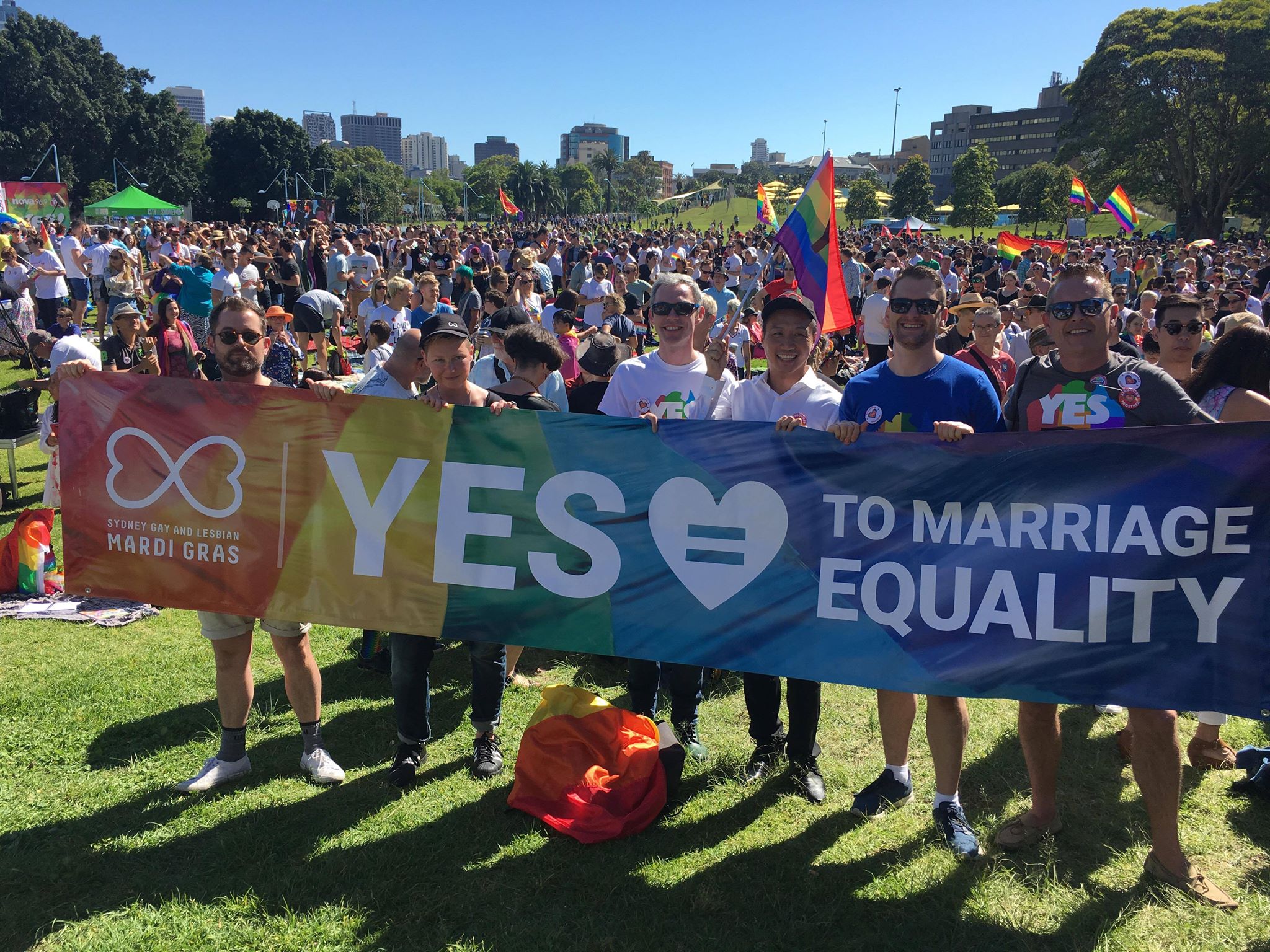Some of the credit for the “Yes” vote in the same-sex marriage postal survey may – unexpectedly – lie with Australia’s religious and ethnic minority communities.
Members of these communities were generally considered conservative and opposed to marriage equality. Certainly, some spoke out against legislative reform during the two-month campaign leading up to Wednesday’s survey result, citing religious or cultural reasons for opposing it.
However, a number of religious and ethnic minority leaders defied the stereotypes, publicly supporting a change to the Marriage Act. Some of those told Hatch their reasons.
“The people leading the ‘No’ campaign, they would have you believe that the vast majority of the (Arab) community are against same-sex marriage,” said the chief executive of the Arab Council Australia, Randa Kattan. “Well, the jury is still out, as far as I’m concerned, on that one.”
Her organisation announced its support for same-sex marriage in September, in an article on its website.
“We took that decision … because we believe there are members of our community who are not being supported,” said Kattan. “There is nobody speaking out for them from within the community.
“People who identify as LGBTIQ are an integral part of our community and are entitled to the same freedoms and rights, and the recognition before the law, as every other citizen in this country.”
Enlarge

The postal survey, announced by Prime Minister Malcolm Turnbull in August after the federal Senate rejected his plan for a plebiscite on the issue, was distributed in 15 languages.
Australia’s first Muslim Miss World, Esma Voloder, announced her support for same-sex marriage last month.
“I think it is Australian culture to have acceptance, and these are the things we should continue to focus on and continue to talk about with respect. I believe that everyone has equal rights,” Volder told SBS World News.
The stereotypical view of ethnic minority and religious Australians objecting to same-sex marriage stems partly from perceptions of their conservative cultural values and attitudes towards gender and sexuality.
When the NSW Arab community launched a report on gay and lesbian Australians from Arab backgrounds in 2012, entitled We’re Family Too, Kattan said there was “a distinctive belief in our community … that (homosexuality) is a Western import, and that it doesn’t exist, or if it does exist, not to the same extent, in Arabic communities.”
According to Father Peter Maher, a retired priest formerly at St Joseph’s Catholic Church in Newtown, western Sydney, gay and lesbian Catholics face challenges if they stand by their faith and Gospel values.
“There is still a significant group who are very committed to the Church and who feel that they shouldn’t have to make a choice between their sexual orientation and their faith,” he said. “So they choose to remain in the Church even though sometimes the Church’s treatment of LGBTI Catholics is not good.”
Maher also rejected the criticism that legalising same-sex marriage will threaten religious freedom, saying the postal survey is “not about religious freedom, it is about changing the Marriage Act”.
Two Liberal Senators are sponsoring rival bills which would legalise same-sex marriage; one is backed by moderate politicians and the “Yes” campaign, while the other, which contains numerous exemptions for opponents of marriage equality, has received support from hardline “No” advocates.
The federal Minister for Education, Simon Birmingham, has described the former as a “logical starting-point” for a parliamentary debate on the issue.
Religious opposition has come from leaders such as the Hillsong Church’s Senior Pastor, Brian Houston, who declared: “I believe God’s word is clear, that marriage is between a man and a woman. The writings of the Apostle Paul in Scripture on the subject of homosexuality are also clear.”
However, Benjamin Oh, a member of the Australian-Chinese community, devout Catholic and chairman of the GLBTIQ Intercultural and Interfaith Network, told Hatch that – rather than such statements – it was the “complicity and silence” of some religious leaders that were most painful.
“In good conscience, knowing the history of discrimination, how can you be complicit in denying a civil right?” he asked. – Fern McNulty @fernmcnulty1 editing by Kathy Marks


